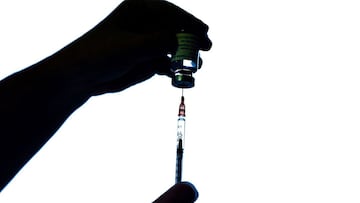What precautions should you take after getting covid-19 vaccine?
Both Pfizer-BioNTech and Moderna have vaccines on the market that are being administered throughout the US and the world, take care after yours.

Take care of yourself after getting the covid-19 vaccine
Many vaccine recipients may have some side effects, which are normal signs that your body is building protection, and are common with most types of inoculation. The coronavirus vaccines are no different.
These side effects may affect your ability to do daily activities, but they should go away in a few days.
The most common side effects in the arm where you get the shot are pain and swelling. You can apply a clean, cool, wet washcloth over the area and use or exercise your arm to help ease the discomfort.
In the rest of your body, it’s expected and normal to experience fever, chills, headache and tiredness. To ease these symptoms, over the counter medicines such as such as ibuprofen or acetaminophen are safe to take, and you should drink plenty of fluids and dress lightly, according to the CDC.
In most cases, discomfort from fever or pain is normal following a covid-19 vaccine, as with all vaccinations but you should contact your doctor or healthcare provider:
- If the redness or tenderness where you got the shot increases after 24 hours
- If your side effects are worrying you or do not seem to be going away after a few days
What precautions should you take after being vaccinated for covid-19?
First things first, you will not be protected until you have had both shots of a coronavirus vaccine, so between doses, it’s important to behave as though you are still unprotected, and after both shots as well.
There is one vaccine awaiting emergency use authorisation from the FDA being made by Johnson & Johnson which requires only one dose but until that is on the market, in order to be fully protected, you must have completed the course of two shots and allowed it to get to work.
The BBC reported last month that a nurse working in Wales said she contracted covid-19 while waiting for her second dose.
What’s more, experts have repeatedly warned that people should remaining covid-cautious even following vaccinations for a few reasons; protection, though more probable following vaccination isn’t immediate or guaranteed and you could still be infectious to others even if you’re immune from covid.
It takes around a week after the second shot for the Pfizer-BioNTech vaccine to reach 95% efficacy. Moderna’s vaccine efficacy increases to the maximum 94% two weeks after the second dose. This means that even if you get your two shots as scheduled and wait the appropriate amount of time, there is still a small chance you could be infected and develop symptoms, said Onyema Ogbuagu, the principal investigator for Pfizer’s vaccine trial at Yale University in the Washington Post.
To that end, experts are recommending that until more people are vaccinated and we know more about transmission and efficacy following vaccination, stay socially distanced and mask up in public – for the sake of those who are not yet protected, if not for yourself.
Yes, people with coronavirus vaccinations should still distance from each other. Here’s why. https://t.co/zazPdgQKmu
— The Washington Post (@washingtonpost) January 21, 2021
Who decides who gets vaccinated first?
Related stories
The Food and Drug Administration has issued emergency use authorisations for covid-19 vaccines and large quantities of the vaccine are being distributed across the country.
Because it will take a while to make and distribute enough of the vaccine for everyone who wishes to be vaccinated against covid-19, the U.S. Centers for Disease Control and Prevention (CDC) is recommending groups of people who should get priority. The CDC has been working closely with state health departments and partners to develop these recommendations.